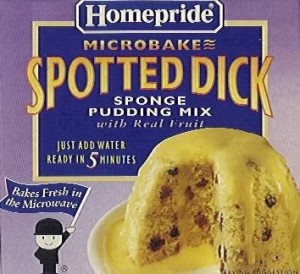
My mother was confused when I referred to the bathroom as the loo. When I explained it was the British equivalent of toilet, or bathroom, she mused with puzzlement, “But the House Hunters show when in England calls it a water closet.” I then had to explain that there is a difference between the loo, and a water closet, unfortunately, I don’t know exactly what it is. I looked both up, and both seemed to refer to the area where the toilet resided, as opposed to a bathroom, ladies room, powder room, and lavatory, we here in the US refer to where the toilet is. Of course, in a bathroom, there is also a bathtub, sink, cabinets and depending on wealth, all sorts of other tricked out things. My understanding of the loo, is it’s either just the toilet or a room with a toilet. Whereas water closet, or WC, is a room with a toilet, or just the toilet–see the difference?
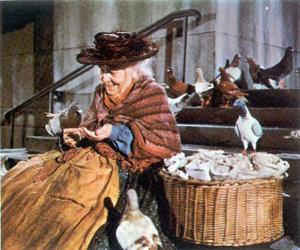
This little verbal interlude got me thinking about all the odd expressions the British use–odd from an American’s point of view, naturally. Some of these expressions have become second nature to me–and it’s not because of the two brief visits to England I’ve taken. I started puzzling and exploring the meanings of draughts, fairy lights, kerfuffle, and plimsoll from the various books I devoured in my youth. Besides Dickens, I almost entirely read British police procedurals, Gothics, and Ruth Rendell psychological suspense. By the time I was considered an adult, I felt I knew practically every odd word used by the Brits. Which as usual, wasn’t the case. Some words are so similar, that I fail to see why there is considered a difference. Lorry, knickers, straight away— seem easily understood. French letter, is a bit more obscure and risque, once I discovered the meaning as condom. Since I read crime novels, other words that aren’t used in the US were revealed—suss [out] * (informal) to figure out (from suspicion)–a screw–prison guard —nonce–pedophile —sod off–get lost-and Toff–(slang) member of the upper classes–the last I had to look up to decide if I wanted to read a title–The Toff At The Fair.
Phrases such as fish and chips are now part of US culture, because we’ve been saturated with ‘authentic’ examples of English life, in historical themed and current films. Pride and Prejudice, etc,. James Bond, Sherlock Holmes all helped to acquaint the common citizen with the common English language. Everyone knows that chips are not potato chips, crispy things sold in bags, but thick sliced potatoes. Which are called French Fries here. Or, if you are an idiot congressman, they’re called Freedom Fries because the French did something that displeased our elected officials Tuppence was something I sang ad naseum after I saw Mary Poppins–Feed the birds, tuppence a bag, tuppence tuppence tuppence, a bag!
Some less common expressions such as made redundant are almost never heard here. It took me a while after encountering this, to really understand that it meant being laid off from work. Let go–not fired, but no longer employed. Redundant is an odd word choice to me. Compromise agreement sounds as though one has been sued and now the two parties are compromising–or it’s the judge’s ruling in divorce court. however, it really means severance package. In the US, when someone has worked awhile with a company, and they are laid off (made redundant) they get a severance package with includes money and sometimes vacation time or pay. But unlike the UK, we usually have no say on what it is we get–therefore, no compromise can be made. So after being made redundant, having received your compromise agreement, you now go on the dole–on

employment. I’m not certain if the UK has welfare–if so, I’ve no idea what it’s called, unless the dole is perpetual, then it’s welfare. Public housing is the term we use for the less fortunate. Council flat didn’t penetrate my thick brain for awhile, it sounds so pleasant I thought it was a description of a type of apartment. After reading a series of books where the perp came from a council flat, I caught on. Another word that took me a bit to grasp–doss. Slacking off or being lazy didn’t fit with a short word like that, lol.
A couple of flickr friends live in the UK, and I’m often struck by the differences in speech even there. One said he was going to a boot sale–at first I honestly thought he’d be checking out cheap wellies! I can’t imagine many sellable things being able to fit into the trunk of a car–but that’s what a boot sale is. We call it a garage sale–although that’s gone a little out of favor, since the garage can’t hold all the stuff we want to sell anymore and we had to expand it into a yard sale. Recently in flickr, a discussion started of why presenter is used instead of host, or star, in the UK, for the person on the TV screen. We didn’t come to any real conclusion except that the word star doesn’t describe what a BBC presenter does.
Electric fire, (heater) estate agent, (realtor) fringe, (hair bangs) gaol, (jail) jumble sale (rummage sale–usually at a church) knackered--(exhausted–originally from sex) nosy parker (self explanatory) have weaseled their way into US society, to a degree. A word like gobsmacked is the new favorite expression among my online mystery group, and spot on, is being used by pretentious nitwits here. My new favorite it gormless–lacking in intelligence. One word has been always a part of my language–probably handed down through the
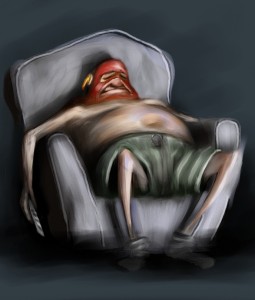
years from an ancestor. Plait is the word we use for a braid in hair. No one else seemed to use it, and I thought it was made up, until I came upon it in print. Hoover was foisted upon me while doing a play, I had to say the word repetitively while pushing a vacuum cleaner. I guess the brand name became the common name the way Xerox and Kleenex are used interchangeably with copier and tissues.
Jumper is misleading–in the UK it means a sweater–in the US–it’s an overdress–something one has over a shirt. A heath robinson is completely understandable to me, but I’m in the minority–I loved W. Heath Robinson’s illustrations, and I know that he came up with wild wacky inventions that are so convoluted, they take far more time to accomplish what they are supposed to. Later in the US Rube Goldberg came up with his own zany inventions–and the classic board game Mouse Trapwas derived from him.
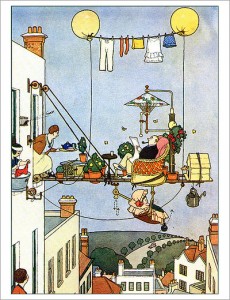
A hold all is also easily converted to a carry-all–that’s what my grandmother called a shopping bag, which then made my mother call it that, and yes, I ended up using carry all, and when I ask for one in public, they look at me strangely. Maky–feeling ill, out of sorts–is close to another grandmother word–punky. Punky meant feeling under the weather, but not sick, just off. Again, I believed it was a made up word, until I came across a piece of sheet music called the Punky Pumpkin. I felt vindicated in life.
Some words need to stay in the UK– mincer–meaning homosexual–is one. Wanker (offensive) literally, a masturbator; used as a general insult or term of abuse–is another. And seriously, Spotted dick? It doesn’t conjure up an English steamed suet pudding containing dried fruit (usually currants) commonly served with custard–to Americans. I’ll leave what many of us do envision, to your imaginations.

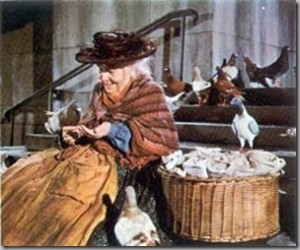
i think your article is so much informative for developing a new designer. i will try to follow your instruction properly. i think your next article will published as soon as possible.
i think your article is so much informative for developing a new designer.
i will try to follow your instruction properly.
i think your next article will published as soon as possible.
welfare = benefits !
I like “jobsworth” to describe a low-level functionary who’s main goal in life is to say no to any request made by the public.
LOL–I’ll keep that in mind for future reference.
Honesty, the word mincer might have been used in Edwardian England, but it’s certainly not in use now. And also, ‘compromise agreement’ – I’ve never heard of that, never seen it used. We’d say something like ‘redundancy payment’ or for short we might refer to our ‘redundancy’. As Churchill said – two nations divided by a common language.
The mincer expression being out of use is a very good thing, thanks for telling me. And I too had not heard of ‘compromise agreement’ but apparently it exists. Perhaps a new way of saying the same thing?
My favorite from when we lived there was newsreader – I mean, that’s what they do – read it off the prompter now, used to be read it off paper (best seen in Monty Python sketches!) – and much better term than … well, I don’t know what we call them here. “Anchor,” yes, but that’s only for the main person. Brian Williams is the “anchor” … but what do we call the person who reads the news at the top of the hour on the Today Show? (Savannah?)